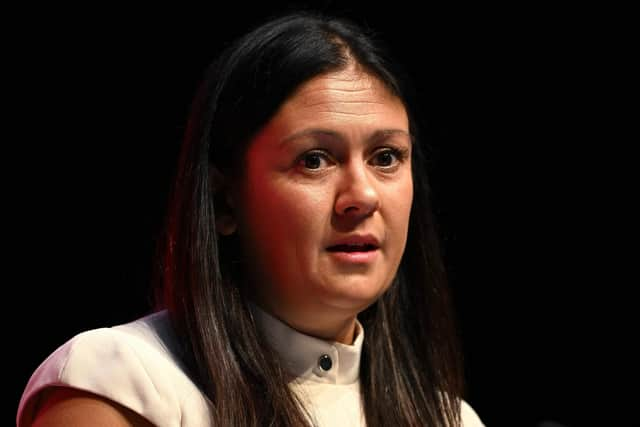Yorkshire could get more than half a billion pounds a year thanks to devolution
Research by the Centre for Progressive Policy (CPP) published today found that expanding fiscal devolution by giving areas 2 per cent of income tax to spend locally could allow redistribution which means that local economies do not fall behind.
Its analysis found that the West Yorkshire combined authority would receive £259.2m a year annually under this policy, with South Yorkshire receiving £192.4m.
Advertisement
Hide AdAdvertisement
Hide AdRegions would be able to keep half of this money to spend locally with the other half redistributed towards places with “weaker economies” under the proposals.


The report argued that local government finances must be stabilised “immediately” if there is “any hope” of delivering local growth.
The think tank called on a potentially incoming Labour government to take immediate steps to remedy the “desperate state of local government finances if it wants to make local economies engines of growth".
Senior Labour figures have spoken of wanting to win power in order to give it away to local places – a commitment it will legislate for in its Take Back Control bill.
Advertisement
Hide AdAdvertisement
Hide AdHowever the CPP warned that current local finances are so weak following a decade of austerity and mounting pressures on local services that Labour’s devolution mission would fall flat.
It comes after Lisa Nandy, Labour’s then-shadow levelling up secretary said an incoming Labour government would not devolve new tax powers to local mayors, as suggested by the think tank.
The party has repeatedly stressed that it wants to see local decisions taken by local leaders, but recent economic pressures have meant that the fiscally-minded members of the shadow cabinet, such as Rachel Reeves and Pat McFadden, have called for stringent discipline of public spending so that the country can be got back onto a sure economic footing.
“We don’t have plans to give tax-raising powers to local authorities, and the tax burden is at a historical high,” Ms Reeves told The Yorkshire Post earlier this year.
Advertisement
Hide AdAdvertisement
Hide Ad“The last thing we need at the moment is more taxes being dreamt up by either Westminster or the Town Hall.
“We have put forward a few specific closings of tax loopholes. There are targeted tax increases but that is through closing loopholes.”
The CPP’s report published today calls for an immediate shift to 3-year local government finance settlements and an accelerated roll-out of single pot funding streams seen in Greater Manchester and the West Midlands’ trailblazer deals.
This includes as a recommendation that 2 per cent of income tax receipts should be devolved to local or combined authorities (whichever tier is highest). This is equivalent to £5.6bn.
Advertisement
Hide AdAdvertisement
Hide AdPlaces would be able to retain 50 per cent of tax receipts allocated through this route locally, providing a significant boost to their ability to plan and spend according to the needs of their resident, it added.
Charlotte Alldritt, CEO of the Centre for Progressive Policy said: “Labour has spotted an opportunity to capitalise on the Tories’ failure to level up the country. But Labour will not succeed where the Tories have failed without addressing the parlous state of local government finances.
“Moving to three-year settlements for funding must be a priority on day one, along with expanding trailblazer deals to every combined authority. Handing local places 2 per cent of income tax receipts would signal Labour means business when they say they want to win power to give it away.
“A growing State – and debates about how to fund it – will be an unavoidable feature of the next parliament.
“But these changes would enable moves towards a smarter State, in the form of more efficient and effective local government, with almost immediate effect.”